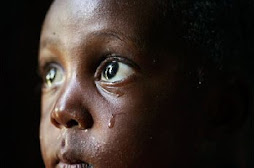Martin Fletcher in Harare
At one point or another every white Zimbabwean family has had the same debate: whether to stay in the country they love, as it steadily deteriorates, or whether to cut their losses and move elsewhere.
The young, those concerned about their futures, have mostly chosen to go. One of the many sadnesses of Zimbabwe is that it is a land of broken families, with children and grandchildren scattered across the world, having left to start new lives in outh Africa, Britain, North America, Australia or New Zealand.
Some middle-aged white Zimbabweans, including former farmers whose land was seized, have stayed, learnt to play the system and run reasonably successful businesses. A lot of older and retired Zimbabweans, however, chose to stay in the land where they have lived all their lives because they reasoned that genteel poverty would be easier to endure in a warm climate than in the damp, grey cold of England. What they probably underestimated was the extent of Zimbabwe's collapse.
Astronomical inflation has rendered their pensions, lifetime savings and insurance policies utterly worthless. Their last remaining wealth is tied up in their Properties, and they now live off remittances from their children or whatever they have managed to stash away in foreign bank accounts.
That was fine until US dollar inflation also began to soar a few years ago. Provided Zimbabweans have foreign currency they can still buy most of the commodities they need, but at silly prices and many now make two- or three-day journeys to Botswana or South Africa to buy pallet-loads of cheaper food. The collapse of the health system means they now have to pay for expensive private health care in foreign currency if they fall ill. The breakdown of water and electrical supplies means they have had to sink boreholes in their gardens and invest in generators. Even The Herald, the miserable, state-controlled newspaper, now costs $1.Most muddle through, somehow, though they live in constant fear of serious illness or major house repairs. They long ago stopped using their swimming pools. They have turned lawns into vegetable patches. They gave up whisky, then meat, and take their ageing cars out less and less. In extremis there are a couple of charities that offer discreet help to indigent whites.
The Times was told of one elderly man who committed suicide recently so that his wife would have only one mouth to feed. The only problem is that even the most odest funeral costs around $300 - which makes the cost of dying almost as prohibitive as the cost of living.
Subscribe to:
Post Comments (Atom)

No comments:
Post a Comment